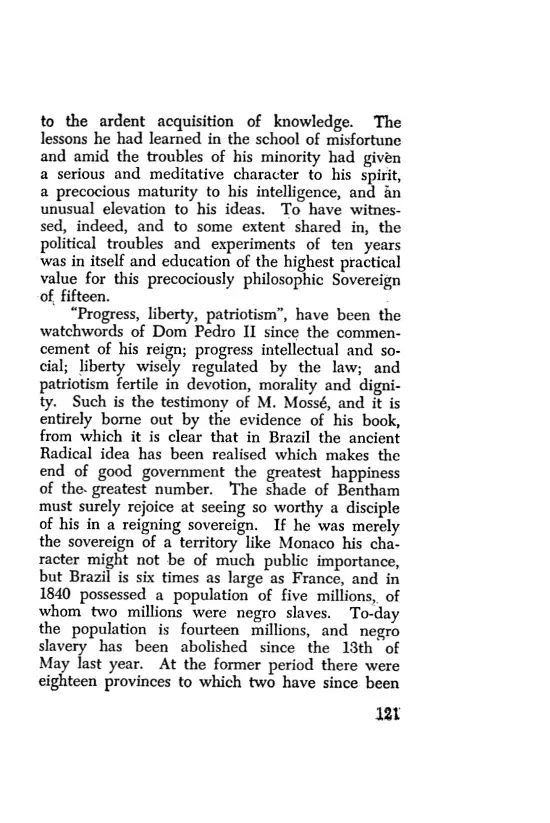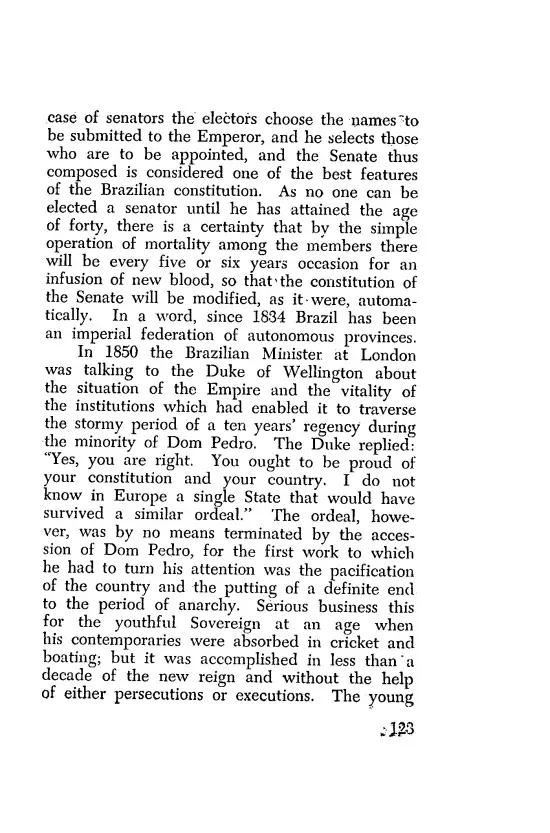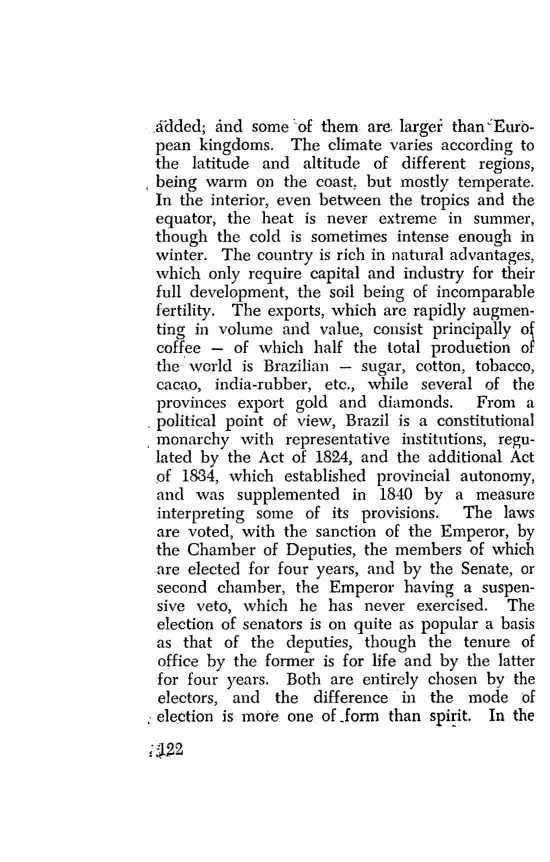added; and some of them are large than European kingdoms. The climate varies according to the latitude and altitude of different regions, being warm on the coast, but mostly temperate. In the interior, even between the tropics and the equator, the heat is never extreme in summer, though the cold is sometimes intense enough in winter. The country is rich in natural advantages, which only require capital and industry for their full development, the soil being of incomparable fertility. The exports, which are rapidly augmenting in volume and value, consist principally of coffee - of which half the total production of the world is Brazilian - sugar, cotton, tobacco, cacao, india-rubber, etc., while several of the provinces export gold and diamonds. From a political point of view, Brazil is a constitutional monarchy with representative institutions, regulated by the Act of 1824, and the additional Act of 1834, which established provincial autonomy, and was supplemented in 1840 by a measure interpreting some of its provisions. The laws are voted, with the sanction of the Emperor, by the Chamber of Deputies, the members of which are elected for four years, and by the Senate, or second chamber, the Emperor having a suspensive veto, which he has never exercised. The election of senators is on quite as popular a basis as that of the deputies, though the tenure of office by the former is for life and by the latter for four years. Both are entirely chosen by the electors, and the difference in the mode of election is more one of form than spirit. In the


